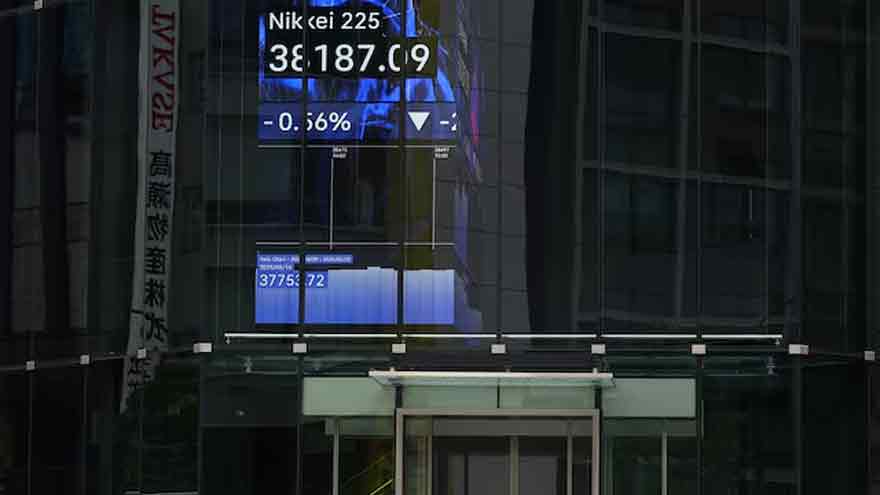Asia markets stabilise following Middle East truce
Business
Japan's Nikkei (.N225) and Australia's stock benchmark (.AXJO) were flat
TOKYO (Reuters) - Asian stocks stabilised on Wednesday as crude oil hovered near multi-week lows as a ceasefire between Israel and Iran buoyed sentiment, even as hostilities threatened to flare up again.
The dollar wallowed close to an almost four-year trough versus the euro with two-year U.S. Treasury yields sagging to 1 1/2-month lows as lower oil prices reduced the risk to bonds from an inflation shock.
The shaky truce has so far held, although Israel says it will respond forcefully to Iranian missile strikes that came after U.S. President Donald Trump had announced an end to the hostilities.
In addition, U.S. airstrikes did not destroy Iran's nuclear capability and only set it back by a few months, according to a preliminary U.S. intelligence assessment, contradicting Trump's earlier comments that Iran's nuclear programme had been "obliterated".
Japan's Nikkei (.N225) and Australia's stock benchmark (.AXJO) were flat, while Taiwan's index (.TWII) gained 1%.
Hong Kong's Hang Seng (.HSI) rose 0.6% and mainland Chinese blue chips (.CSI300) eased 0.1%.
U.S. stock futures were little changed.
An MSCI index of global stocks (.MIWD00000PUS) held steady after climbing to a record high overnight.
Brent crude ticked up 81 cents to $67.95 per barrel, bouncing a bit following a plunge of as much as $14.58 over the previous two sessions. U.S. West Texas Intermediate crude added 70 cents to $65.07 per barrel.
"Despite the cease fire between Israel and Iran appearing somewhat tenuous, the markets are shrugging it off," said Kyle Rodda, senior financial markets analyst at Capital.com.
"Realistically, the markets don't care if a limited conflict comprised of mostly air strikes continues between the two countries," he said. "It's the prospect of a broader war, with deeper US intervention and an Iranian blockade of the Strait of Hormuz that really matters. And for now, the risks of that seem low."
The two-year U.S. Treasury yield dipped to the lowest since May 8 at 3.787%.
The U.S. dollar index , which measures the currency against six major counterparts, slipped 0.1% to 97.854.



